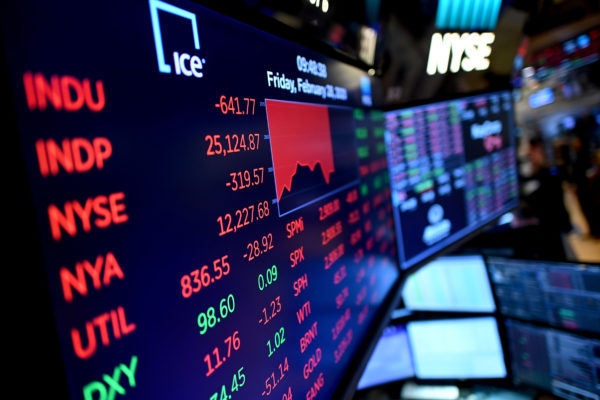During the State of the Union address recently, President Joe Biden proposed quadrupling the current excise tax on share repurchases, or “buybacks.” Biden and other politicians hold a disdain for share repurchases because they misunderstand our tax system, corporate investment and the relationship between the two. There are three myths Biden is subscribing to.
The first is that CEOs use buybacks to enrich themselves to the detriment of the long-term growth of the company.
This is a two-part myth. First, there is a misconception that stock buybacks shovel undeserved money out to the CEO and other wealthy shareholders. In an open market share buyback, which makes up most buybacks, the corporation simply buys shares on the open market — just like anyone clicking “buy” in their brokerage account. Whoever happens to be selling their shares that day could be thought of as the investors who sell shares to the corporation.
Importantly, an advantage of buybacks compared to dividends is that investors have a choice of whether to sell stock. They can’t choose whether or not to receive a dividend. Hence, the cash is allocated efficiently to those who sell — either because they need the cash or otherwise have better investment opportunities.
But, even if CEOs were the ones selling the shares to their corporations in buybacks, they don’t get any richer. They simply trade one asset (stock) for another (cash). Plus, they would have to pay taxes on any gains in the stock.
The second part of the myth is that the buyback hinders the long-term growth of the company. The evidence largely points in the opposite direction. For example, one study finds that buyback stocks outperform peers by 12.1% over the subsequent four years.
The second myth Biden is falling victim to is that buybacks hinder corporate investment.
This myth stems from a basic misunderstanding of textbook finance principles. The Biden administration and some politicians on both sides of the aisle believe that if corporations buy back shares, they will have less money to invest in employees, capital assets, etc. In reality, empirical and survey evidence suggests that the relationship between repurchases and corporate investment points in the other direction — corporations buy back shares after allocating capital to available profitable investment opportunities.
The third myth is that a tax on buybacks will encourage businesses to invest in their growth and productivity.
This myth is predicated on the idea that corporations have only two options for their excess cash: invest in their own growth or pay out cash to shareholders. A tax on buybacks will indeed make buybacks more expensive and could make corporations less likely to repurchase shares. But their alternative is not only to increase productive investment. Remember that corporations first allocate capital to available investment opportunities before setting aside funds for buybacks.
In other words, the best investments were already exhausted. If buybacks become more expensive, corporations may be tempted to spend money on bad investments. Another possibility is that companies will simply hoard the cash until the excise tax on share repurchases is repealed, much as companies did under the pre-2017 international tax system. Either way, if the companies do not return the cash to shareholders, taxing buybacks will probably lead to the most profitable corporations getting systematically larger and more powerful, probably not the result Democrats hope for.
Taxing share repurchases out of disdain for the existence of share repurchases is misguided. Repurchasing shares is an efficient way for corporations to return cash to shareholders, eliminating unneeded capital from the corporation, and handing it back to shareholders to use as they see fit. Congress should reject taxes on share repurchases borne of misunderstanding and seek better ways to raise revenue that don’t involve taxes based on ignorance.
Andrew Belnap is an assistant professor of accounting in the McCombs School of Business at The University of Texas at Austin.
Jeff Hoopes is an associate professor of accounting at the University of North Carolina.
A version of this op-ed appeared in The Hill.




